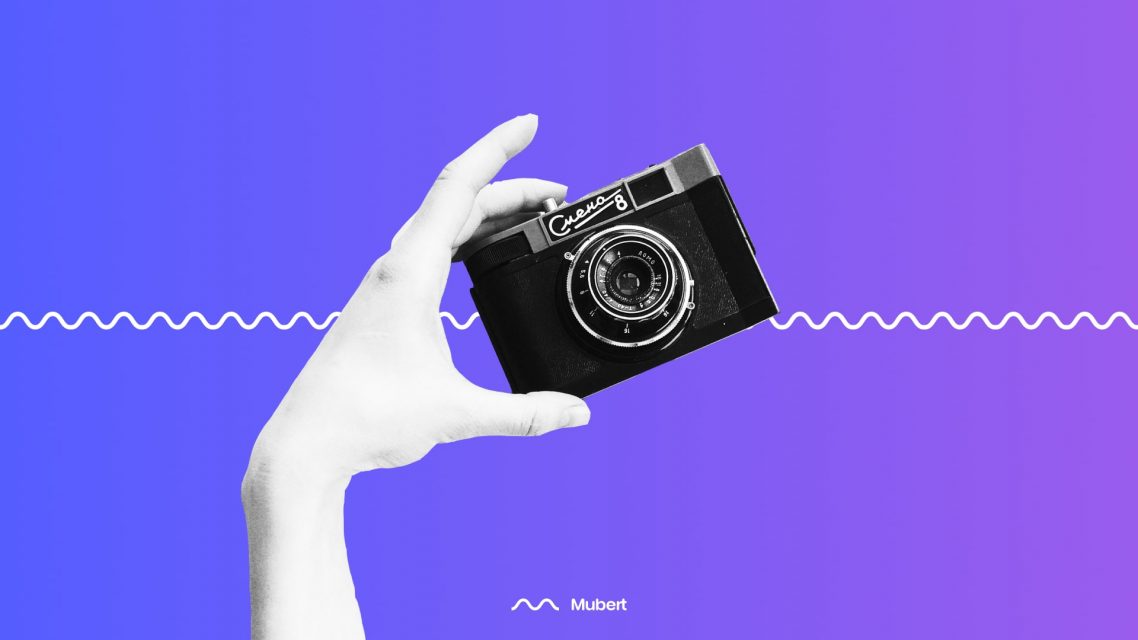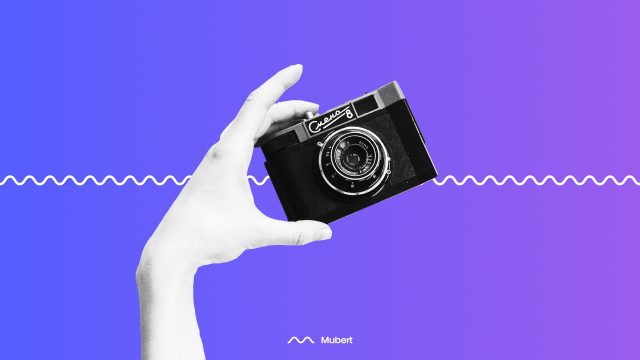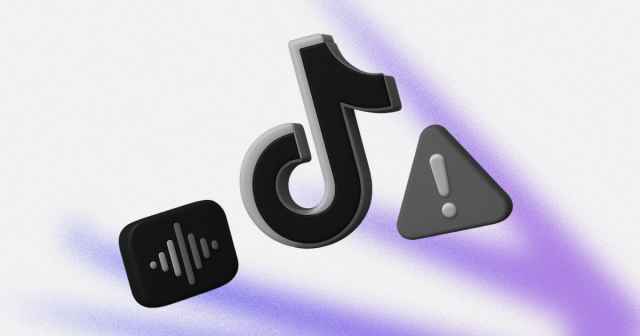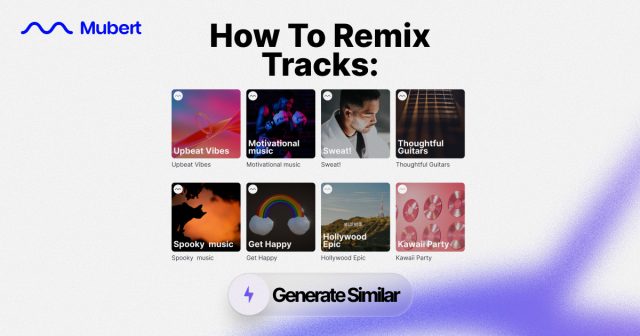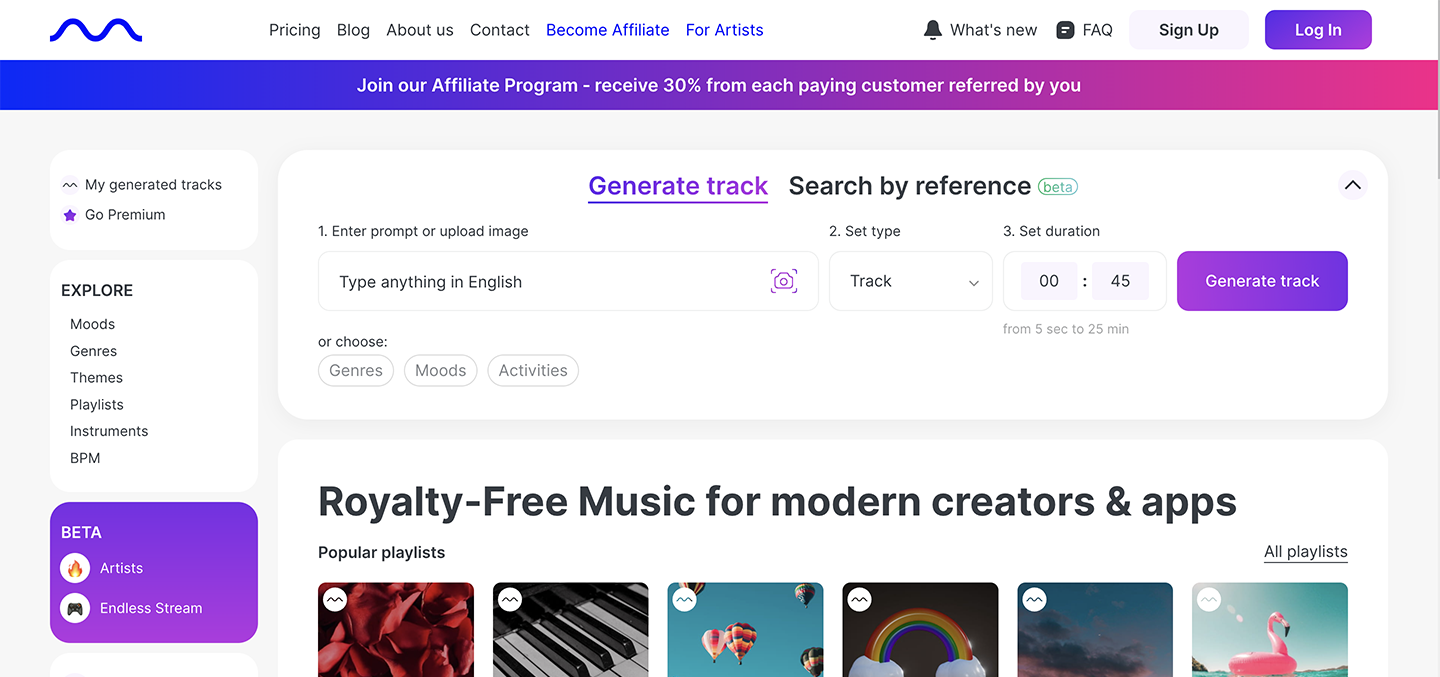
Create royalty-free AI music tracks with one click
Just describe what you want and get an instant track of any duration — and you will never meet any troubles with copyrights
Get startedCopyright Protection
You might be able to use Beethoven, Chopin, Mozart and other composers’ widely-known classical songs on your tracks, but there are also some lesser-known royalty-free classical music loops and samples that are available without copyright protection.
Whether you produce content or not, you probably know about copyright laws. You can’t legally use copyrighted music on any project without permission or a license. This applies to both classical and modern pieces.
If you’re a content creator producing videos, films, and other media forms, you should always license the musical score and background music. This is especially important if you want to avoid having your content muted or, worse, taken down.
However, there are instances when classical pieces, even the popular ones, become public domain. And at this point, you can freely use, copy, distribute, adapt and perform these songs in public without permission or paying a fee.
Once the copyright protection that covers original literary, dramatic, musical and artistic works of authorship ends, these pieces are now part of the public domain. However, it can take a long time for this to happen. But lucky for you, most people now consider popular classical pieces like Mozart’s ‘Fur Elise’ to be copyright-free music. And that is probably why you can hear it being sampled and being used in projects.
Public Domain Explained
If a piece of music has become part of the public domain, that means that it belongs to the people. It belongs to everyone and no one, but using it is still risky. Many companies try to claim these songs. They do this even if the copyright protection period has ended. This occurs because these artists have been dead for more than 50 years.
There is a law stating that music composed by someone who has been dead for 75 years enters the public domain. That’s why, for example, George Gershwin’s compositions became public domain in 2008. This also applies to pieces like Beethoven’s 5th Symphony and works by Tchaikovsky. These artists passed away more than 75 years ago.
Using Public Domain Classical Music for your Projects
Let’s say you discover that a classical piece like ‘Fur Elise’ no longer has copyright, and you want to use it for a YouTube video or other content.. It might be public domain, but it is still a little risky to use– especially if you didn’t rerecord the music yourself.
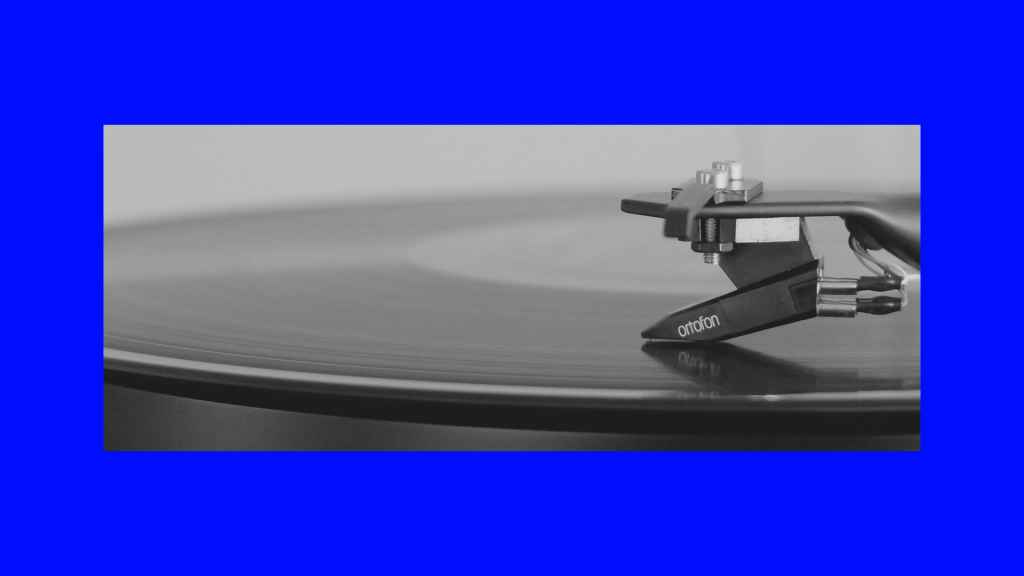
The reason it can be risky isn’t because of the composition itself. The music might be a part of public domain, but the particular recordings that you can download or take from a CD can still be copyrighted.
If you use these recordings for your content, at best, your YouTube video will be stripped of the audio track. But at worst, publishing companies might take legal action against you and take your video down—preventing you from monetizing your content. Although it is public domain, publishers can still take action because of the copyright claims on the recording.
Copyright Intricacies Explained
Classical songs might be part of the public domain already because of the laws, but there are still copyright intricacies to watch out for—and the keyword is “recording.”
There are two copyrights that exist, one is for the composition and one is for the recording. If a classical piece is already a part of public domain, you can use it for rerecording, live performances and other forms. However, because copyright still covers the recording, using a recorded piece of classical music remains prohibited.
Owning the copyright to the recording and the arrangement means you recorded an iteration of the song, and therefore—now you own that arrangement.
For example, if you decide to sing a Mozart piece out loud, that is your arrangement of that composition. If you decide to play “Twinkle Twinkle Little Star” by hitting a hammer on various oil cans tuned to different pitches, that becomes your arrangement. Similarly, if you sit at a piano one day and play “Fur Elise,” while recording your performance, that’s your arrangement. You own the rights to that recording.
When a record company decides to release a classical CD, they create their own arrangement and recording. They own the rights to that recording. After all, recording companies would not spend thousands of dollars on production and re-recording. They also hire full orchestras and wouldn’t just give away the music.
All in all, nobody owns the compositions, but someone can own the recordings and arrangements. This makes classical music copyrighted and not royalty-free. And if you bought a classical music CD, you can use it for personal listening and only that.
Can I Legally Use Classical Music for Digital Content and Projects as Royalty-Free?
Even though the recordings of classical music are under copyright, you can still use them for your projects. If you can hire a bunch of musicians to record them and produce them in a music studio, you can own the rights to these public domain songs. But you don’t have to go through all this either, especially because not all content creators have the resources.
If you’re on a budget there are tools like Mubert that have already gone through the trouble of recording the songs for you. All you need to do is subscribe, allowing you to use royalty-free classical music loops for your own projects.
Can you use classical music without copyright?
Classical music is mostly considered public domain. This means that the composition is no longer protected by copyright laws which typically expire 70 years after the composer’s death. However, a track you’re using may still be copyrighted if the recording was performed by a modern orchestra or a musician. In such cases, you need permission from the owner of the recording. So, to answer the question “Is classical music copyrighted?” — not always.
Can I use classical music in my YouTube video?
Using classical music in your YouTube video can get tricky if you don’t check all rights attached to the recording. The good news is that the underlying sheet music, melodies, and compositions by most classical composers are considered public domain. Yet almost every recording produced in recent years is copyright-protected. If you want to ensure you’re free from strikes or claims, seek out recordings that are explicitly marked as public domain. Some platforms, like Mubert, provide copyright-free options.
Can I use classical music in my film?
You might assume that since classical compositions belong to the public domain, you can freely include them in your film without legal hurdles. This assumption is only partially correct. To avoid complications, consider this: is classical music copyright-free? Technically, compositions by figures like Chopin and Schubert meet this criterion. However, the nuance lies in the performances. To include classical music in your film, find recordings made available for public domain use or work with musicians to create new recordings of classical works. Both routes ensure legal security. In a commercial film, proper attribution or proof of licenses for the recordings ensures that distributors and legal teams accept your soundtrack as compliant.
Final Thoughts on Royalty-Free Classical Music
So, when can you use classical music for your projects? Many creators are still wondering, is classical music subject to DMCA?
Classical music can be subject to DMCA if:
- The piece is not yet part of public domain
- The recordings you used are copyrighted
If you want to use royalty-free classical music for your projects, it’s best to look for sources online. Avoid ripping CDs or downloading songs from the internet without permission. You have two choices: record and arrange the compositions yourself, which is challenging. Alternatively, you can subscribe to websites like Mubert. These sites provide a vast selection of music that you can legally use for your projects.
CreatorEconomy Creators Insights LegalAI Music Company
Mubert is a platform powered by music producers that helps creators and brands generate unlimited royalty-free music with the help of AI. Our mission is to empower and protect the creators. Our purpose is to democratize the Creator Economy.
Generate Track API for Developers

